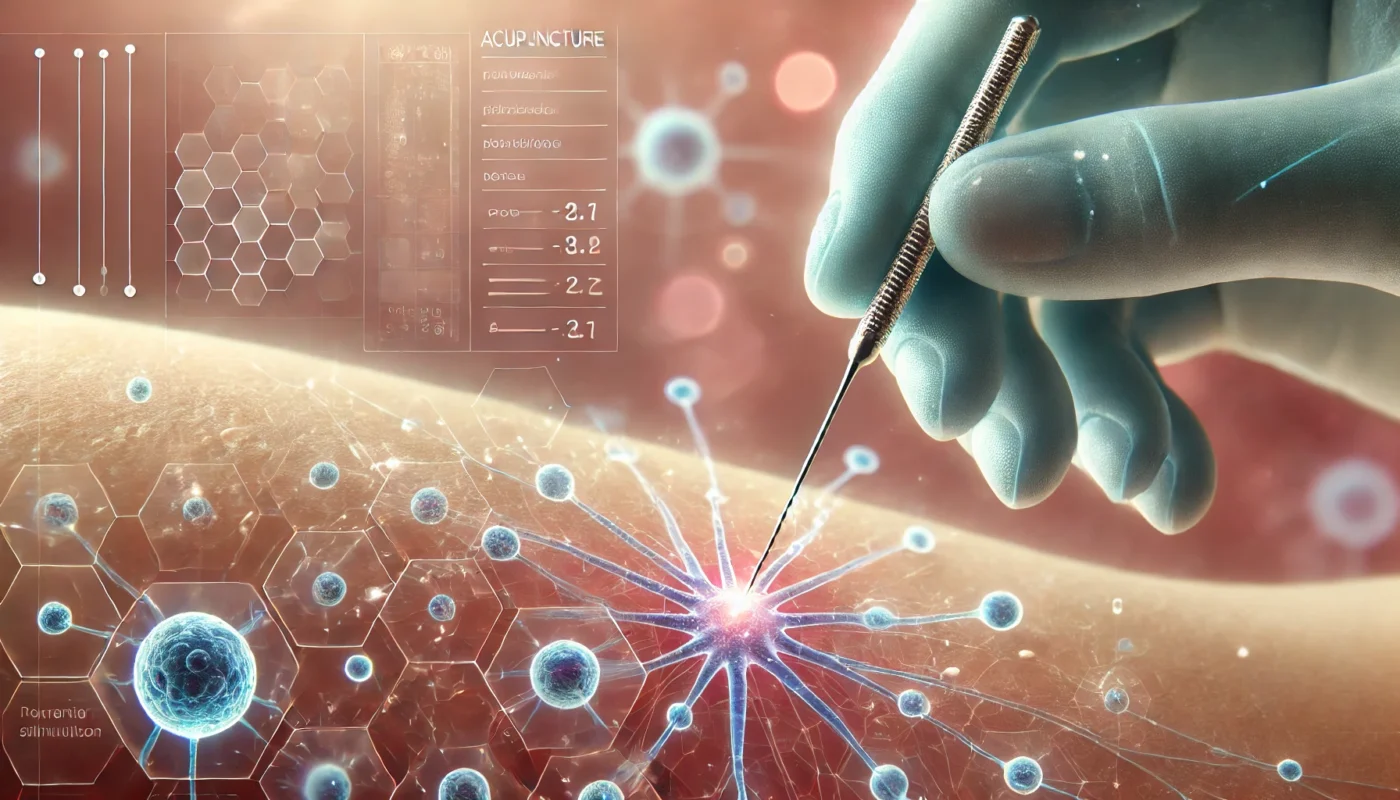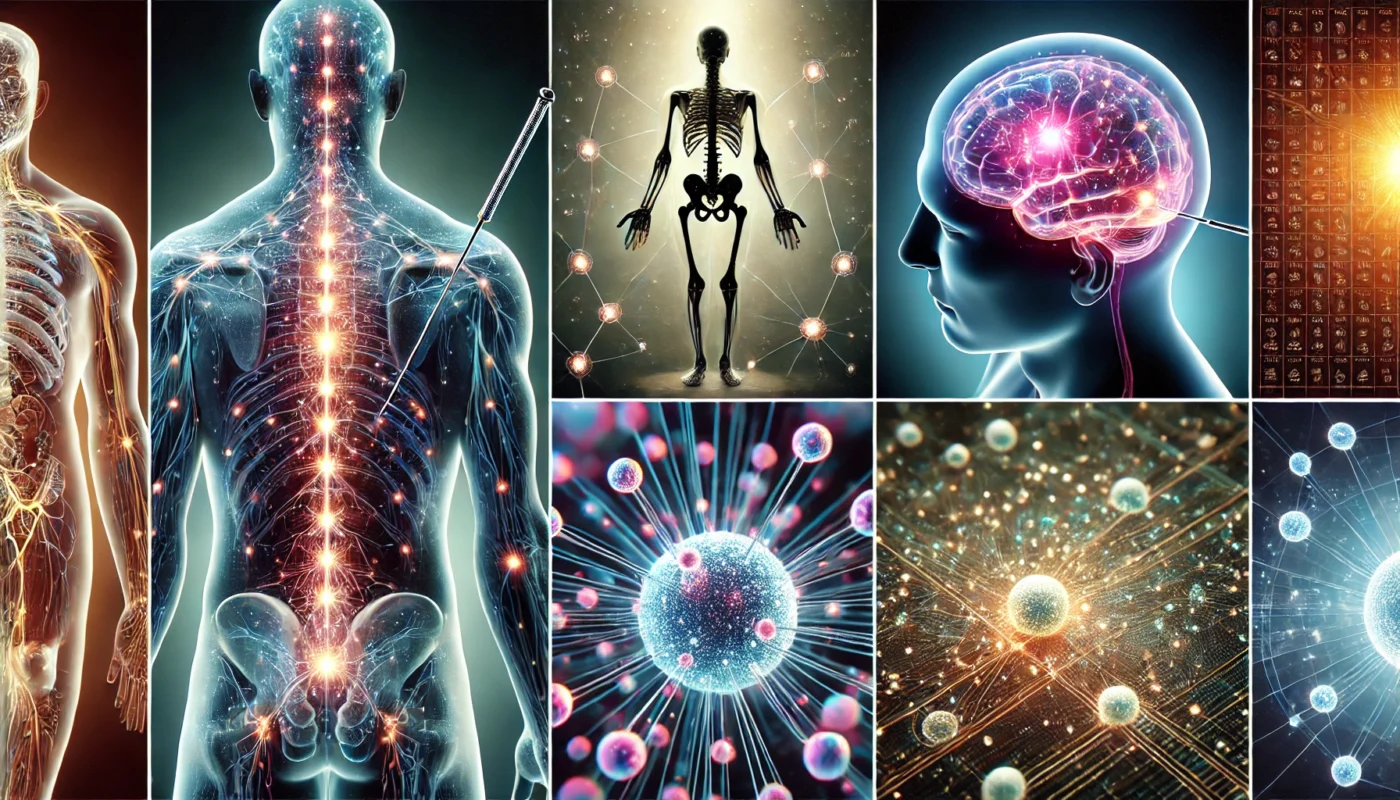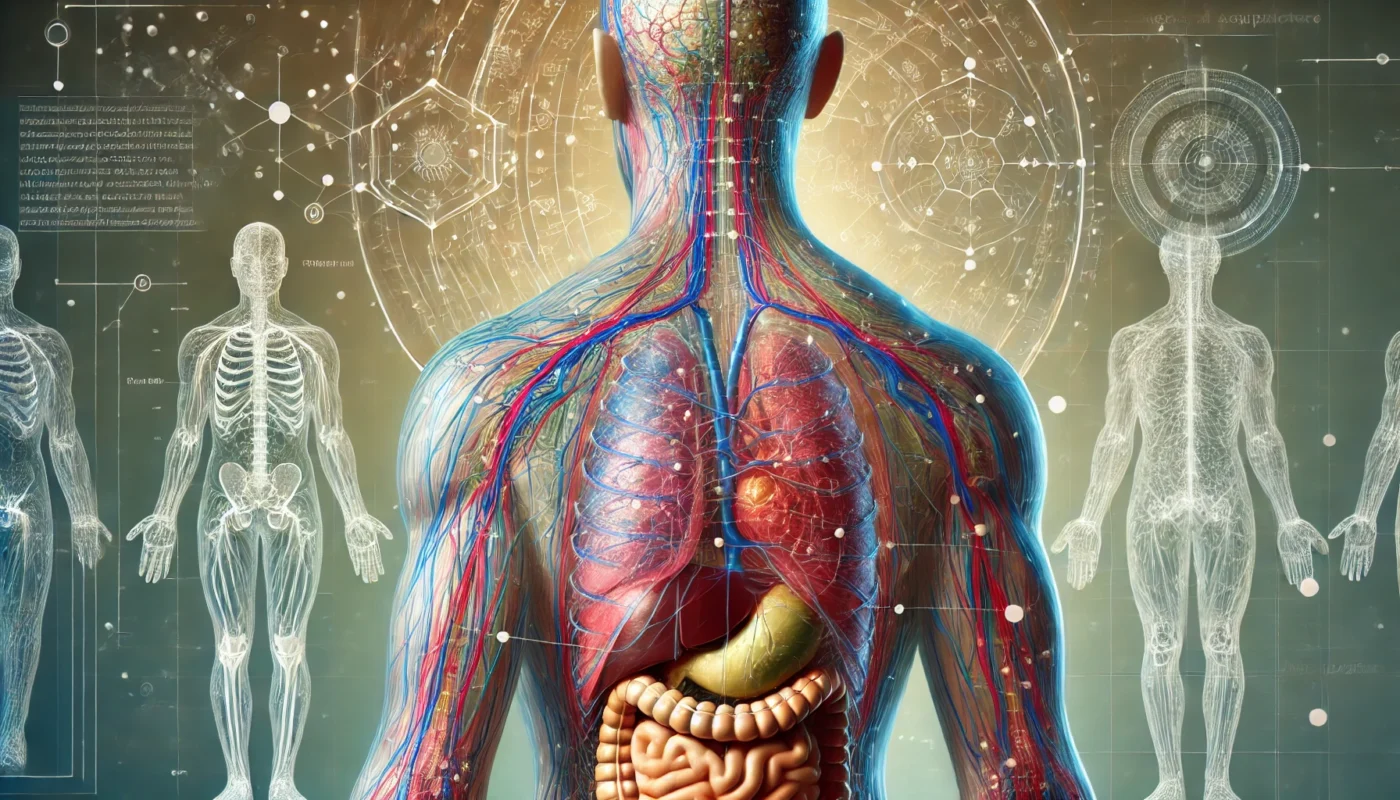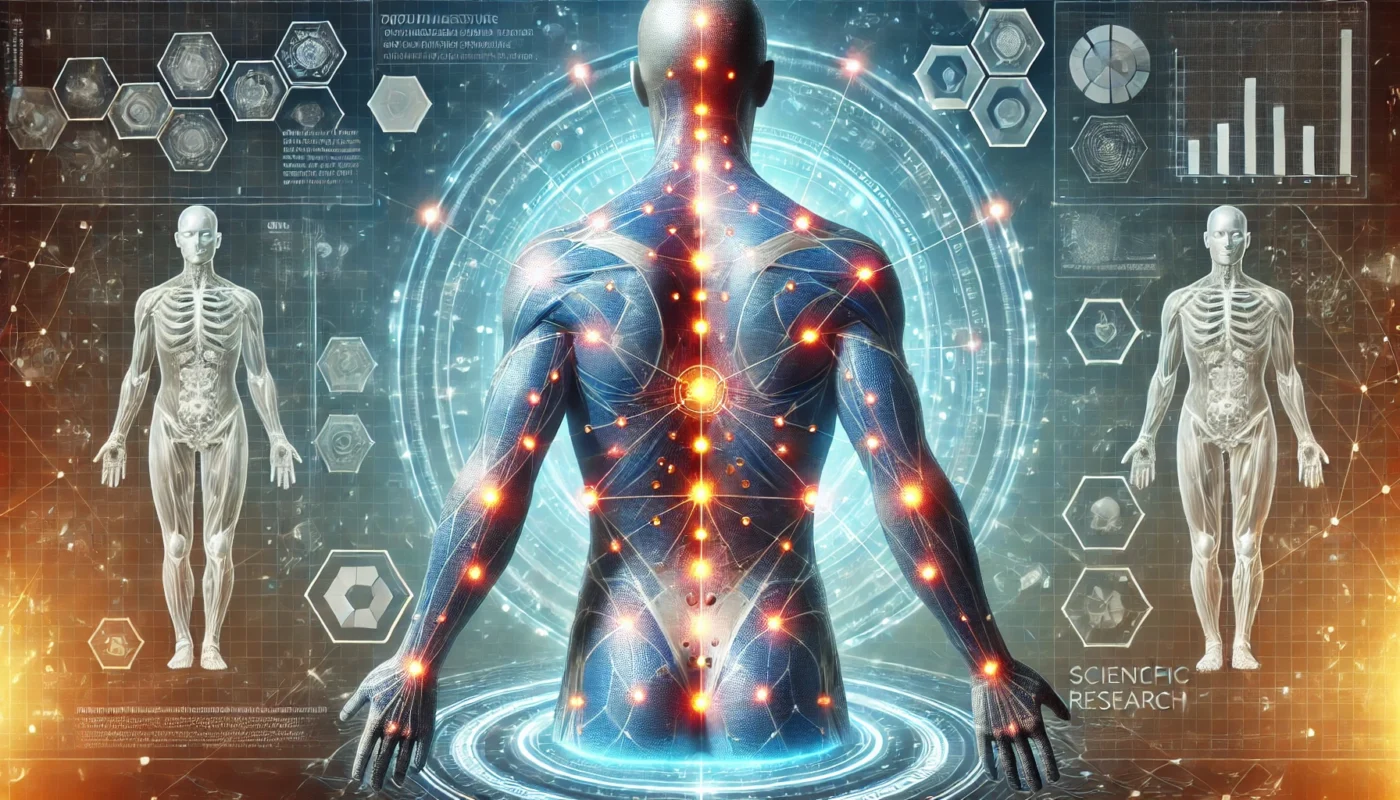Acupuncture, a key component of traditional Chinese medicine, has been practiced for thousands of years. This ancient practice has intrigued many, as it offers a unique approach to health and wellness, distinct from conventional Western medicine. However, its efficacy and scientific basis have often been subjects of debate, particularly in Western medicine. As a health and wellness expert, I aim to unravel the scientific evidence behind acupuncture and provide a balanced view on its effectiveness, helping individuals make informed decisions about integrating it into their health regimens.
You may also like: Exploring the Benefits of Alternative Therapies
What is Acupuncture?
Acupuncture involves inserting thin needles into specific points on the body, known as acupuncture points, to stimulate energy flow or “Qi” (pronounced “chee”). This practice is believed to balance the body’s energy, leading to improved health and well-being.
The Origins and Philosophy
Acupuncture is deeply rooted in ancient Chinese philosophy, which views health as a state of balance between the body’s energies. This philosophy is not merely about physical well-being but encompasses a holistic view of health, integrating mental, emotional, and spiritual dimensions.
The Concept of Qi
At the heart of acupuncture is the concept of Qi, a vital life force that flows through the body along pathways called meridians. According to traditional beliefs, illness occurs when the flow of Qi is blocked or imbalanced. Acupuncture aims to restore this balance by stimulating specific points along these meridians, thus promoting healing and wellness.
Historical Evolution
The historical evolution of acupuncture spans thousands of years, beginning with the ancient texts of the Huangdi Neijing (The Yellow Emperor’s Classic of Medicine). Over centuries, practitioners refined their techniques, expanding the understanding of acupuncture points and their effects. This historical context underscores the enduring nature of acupuncture as a therapeutic modality.
Philosophical Underpinnings
Philosophically, acupuncture is intertwined with the principles of Yin and Yang, which represent the dual nature of reality. This duality influences all aspects of life, including health. Acupuncture seeks to harmonize these forces, ensuring that neither dominates the other, thus maintaining balance and promoting health.
The Scientific Basis for Acupuncture
While acupuncture’s philosophical roots are fascinating, the scientific community requires empirical evidence to support its efficacy. Let’s delve into the research and explore how science is beginning to unravel the mysteries of acupuncture.
Acupuncture and Pain Relief
One of the most well-documented benefits of acupuncture is its role in pain management. Pain relief is a critical area where acupuncture has garnered significant attention and research.
Chronic Pain Management
A multitude of studies have explored acupuncture’s effects on conditions like chronic back pain, osteoarthritis, and migraines. Chronic pain can be debilitating, affecting quality of life, and acupuncture offers a non-pharmacological approach that has shown promise in reducing pain severity and improving patient outcomes.
Mechanisms of Action
Research suggests that acupuncture stimulates the nervous system, triggering the release of neurotransmitters like endorphins and serotonin. These chemicals play a crucial role in pain perception and mood regulation. By modulating these pathways, acupuncture may help reduce pain and enhance emotional well-being.
Clinical Studies
A notable study published in the “Archives of Internal Medicine” found that acupuncture provided significant pain relief for patients with chronic back pain compared to standard care. This supports the notion that acupuncture can be an effective complementary therapy for pain management. Such studies emphasize the potential for acupuncture to be integrated into broader pain management strategies.
How Does It Work?
Understanding the mechanisms by which acupuncture exerts its effects is essential for validating its efficacy within the scientific community.
Neurotransmitter Release
Acupuncture is believed to influence the release of various neurotransmitters, which are chemical messengers that transmit signals in the brain and throughout the body. Endorphins, often referred to as the body’s natural painkillers, are released during acupuncture, potentially leading to pain relief and a sense of well-being.

Modulation of Brain Activity
Functional imaging studies have demonstrated that acupuncture can modulate brain activity, particularly in regions associated with pain processing and emotion regulation. These changes in brain activity may explain some of the therapeutic effects observed in clinical practice.
The Role of Inflammation
Emerging research suggests that acupuncture may also have anti-inflammatory effects, which could contribute to its pain-relieving properties. By reducing inflammation, acupuncture may help alleviate symptoms in conditions characterized by chronic inflammation.
Acupuncture: More Than Just Pain Relief
While pain relief is a significant benefit, acupuncture’s potential extends beyond this. Various studies have explored its effects on mental health, immune function, and even fertility, showcasing its versatility as a therapeutic modality.
Acupuncture and Mental Health
Several studies have investigated acupuncture’s role in managing anxiety and depression. Mental health is a complex and multifaceted area, and acupuncture offers a complementary approach that may enhance traditional treatments.
Anxiety Reduction
Acupuncture has been explored as a treatment for anxiety, with some studies suggesting that it can help reduce symptoms by modulating the body’s stress response. This may involve balancing the autonomic nervous system and promoting relaxation.
Depression Management
A systematic review published in the “Journal of Clinical Psychiatry” found that acupuncture, when combined with standard treatments, improved symptoms of depression more than standard treatments alone. The proposed mechanism involves acupuncture’s ability to modulate brain chemistry, influencing neurotransmitters involved in mood regulation.
Stress and Relaxation
Acupuncture is often used to promote relaxation and reduce stress, contributing to overall mental well-being. By reducing stress levels, acupuncture may help prevent stress-related illnesses and enhance quality of life.
Acupuncture and Immune Function
Emerging research suggests that acupuncture may enhance immune function by influencing the activity of immune cells like T-lymphocytes. The immune system is vital for maintaining health, and acupuncture’s potential effects on immune modulation are of significant interest.
Enhancing Immune Response
A study in “Evidence-Based Complementary and Alternative Medicine” highlighted acupuncture’s potential to boost immune responses in patients undergoing chemotherapy. This suggests that acupuncture may help support the immune system during challenging treatments.
Balancing Immune Activity
Acupuncture may also help balance immune activity, potentially reducing the risk of autoimmune conditions where the immune system attacks the body’s own tissues. By promoting immune balance, acupuncture may contribute to overall health and disease prevention.
Supporting Recovery
For individuals recovering from illness or surgery, acupuncture may support the recovery process by enhancing immune function and promoting healing. This can be particularly beneficial in integrative healthcare settings.
Criticisms and Controversies
Despite the promising research, acupuncture is not without its critics. Skeptics often label acupuncture as a “scam” due to the lack of a definitive scientific explanation for its mechanisms.
The Placebo Effect
One major criticism is the placebo effect. The placebo effect occurs when patients experience improvements due to their belief in a treatment rather than the treatment itself.
Understanding the Placebo Effect
In the context of acupuncture, some argue that the benefits may stem from patients’ belief in the treatment rather than the treatment itself. However, studies using “sham acupuncture” (where needles are placed randomly) have shown that real acupuncture provides greater benefits, suggesting effects beyond placebo.
Evaluating Sham Acupuncture
Sham acupuncture studies aim to differentiate between the actual effects of acupuncture and those attributable to the placebo effect. These studies often show that real acupuncture has specific physiological effects that cannot be explained by placebo alone.
The Role of Patient Expectation
While the placebo effect is a valid consideration, patient expectation can influence outcomes in many therapeutic modalities. Understanding and harnessing this effect may enhance the overall therapeutic experience.
Inconsistencies in Research
The quality and methodology of acupuncture research vary widely, leading to inconsistent findings. These inconsistencies can make it challenging to draw definitive conclusions about acupuncture’s efficacy.
Variability in Study Designs
Variability in study designs, including differences in acupuncture techniques, patient populations, and outcome measures, can contribute to inconsistent findings. Standardizing research methods may help address these challenges.
Subjective Nature of Outcomes
Additionally, the subjective nature of acupuncture’s effects can make it challenging to measure outcomes objectively. Patient-reported outcomes, while valuable, may be influenced by individual perceptions and expectations.
The Need for Rigorous Studies
There is a need for more high-quality, large-scale studies to validate acupuncture’s effects and elucidate its mechanisms. Such research could help bridge the gap between traditional practices and scientific understanding.
Is Acupuncture Scientifically Proven?
The question of whether acupuncture is scientifically proven is complex. While there is substantial evidence supporting its efficacy for certain conditions, the mechanisms remain partially understood.

The Consensus
The consensus among researchers is that acupuncture can be an effective complementary therapy, particularly for pain management. This consensus reflects a growing recognition of acupuncture’s potential benefits in specific contexts.
Pain Management Applications
Acupuncture is widely accepted as a complementary therapy for pain management, with evidence supporting its use for various pain conditions. This acceptance is based on both clinical experience and research findings.
Broader Applications
Beyond pain management, acupuncture shows promise in areas like mental health and immune function, though more research is needed to fully understand its potential applications. Continued exploration of these areas may expand the range of conditions for which acupuncture is recommended.
Integrating Acupuncture into Healthcare
As understanding of acupuncture’s mechanisms improves, it may be increasingly integrated into conventional healthcare settings, offering a holistic approach to patient care. Collaboration between traditional and modern medicine may enhance patient outcomes.
Practical Advice for Considering Acupuncture
If you’re considering acupuncture, here are some practical tips to ensure a safe and beneficial experience. Being informed can help you make the most of this therapeutic option.
Choose a Qualified Practitioner
Ensure that your acupuncturist is certified and has the necessary credentials. In many regions, acupuncturists must pass rigorous exams and adhere to strict standards.
Certification and Training
Look for practitioners with certification from recognized acupuncture boards, as this ensures they have undergone comprehensive training. Proper training is crucial for safe and effective acupuncture treatment.
Experience and Specialization
Consider the practitioner’s experience and areas of specialization, as some may focus on specific conditions or techniques. An experienced acupuncturist may offer insights and techniques tailored to your needs.
Personal Comfort
It’s important to feel comfortable with your practitioner, as a positive therapeutic relationship can enhance the treatment experience. Consider scheduling a consultation to discuss your goals and expectations before beginning treatment.
Communicate with Your Healthcare Provider
Discuss acupuncture with your healthcare provider, especially if you have existing health conditions or are undergoing other treatments. Acupuncture can complement traditional treatments but should not replace them.
Integration with Existing Treatments
Integrating acupuncture with existing treatments can offer a holistic approach to health management. Coordination between your acupuncturist and healthcare provider can ensure that treatments are complementary and not conflicting.
Safety Considerations
Your healthcare provider can help assess any potential risks or contraindications, ensuring that acupuncture is a safe option for you. This is particularly important if you have complex medical conditions or are pregnant.
Informed Decision-Making
By communicating openly with your healthcare provider, you can make informed decisions about incorporating acupuncture into your health regimen. This collaborative approach supports comprehensive and personalized care.
Set Realistic Expectations
While acupuncture can provide relief and improve well-being, it’s essential to have realistic expectations. It may not work for everyone, and results can vary.
Understanding Treatment Outcomes
Discuss the expected outcomes with your practitioner, acknowledging that individual responses to acupuncture can differ. Understanding what acupuncture can realistically achieve helps manage expectations and satisfaction.
Multiple Sessions
Acupuncture often requires multiple sessions to achieve optimal results, particularly for chronic conditions. Be prepared for a commitment of time and resources to experience the full benefits of treatment.
Complementary Role
Recognize that acupuncture is often used as a complementary therapy, enhancing rather than replacing other treatments. Its role in a broader healthcare plan can contribute to overall well-being.

Conclusion
Acupuncture remains a fascinating and promising field in holistic health. While its scientific basis continues to be explored, there’s no denying its potential benefits, particularly in pain management and mental health.
As we continue to study and understand acupuncture, it can serve as a valuable complementary therapy for those seeking to enhance their health and well-being through holistic approaches. Whether you’re a fitness enthusiast, health enthusiast, or medical patient, acupuncture offers a unique avenue for exploring alternative health strategies.
In this journey of discovery, it’s crucial to remain informed and open-minded, integrating both traditional and alternative approaches for optimal health. By embracing a holistic view of health, we can better navigate the complexities of wellness and enhance our quality of life through informed choices and integrative practices.
Further Reading:
acupuncture, holistic health, pain management, complementary therapy, mental health, healthcare integration, alternative medicine, wellness, patient care, acupuncture practitioner, treatment outcomes, health strategies
Important Note: The information contained in this article is for general informational purposes only, and should not be construed as health or medical advice, nor is it intended to diagnose, prevent, treat, or cure any disease or health condition. Before embarking on any diet, fitness regimen, or program of nutritional supplementation, it is advisable to consult your healthcare professional in order to determine its safety and probable efficacy in terms of your individual state of health.
Regarding Nutritional Supplements Or Other Non-Prescription Health Products: If any nutritional supplements or other non-prescription health products are mentioned in the foregoing article, any claims or statements made about them have not been evaluated by the U.S. Food and Drug Administration, and such nutritional supplements or other health products are not intended to diagnose, treat, cure, or prevent any disease

